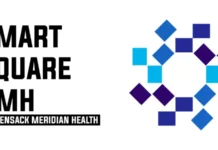When going in for orthopaedic surgery, you are as responsible for the success as the doctors involved. Here are a few details you should be aware of before you go in for the surgery.
Going for orthopaedic surgery can be stressful. You may go to the best orthopaedic doctor in Delhi but that does not take away your responsibility in getting the most out of your treatment. The patients with an understanding of the treatments are best placed to benefit the most from orthopaedic surgery.
Here are a few things that can help you be a constructive partner in the treatment.
Pre-surgery consultation
When you go to meet your surgeon, it is very important that you are able to provide him with all the information about yourself. A most orthopaedic surgeon in Delhi is good at asking the right questions, nevertheless, you the checklist below to provide all the necessary information to the surgeon.
- The problem: Explain how the problem began, how it troubles you and how you have tried to cure it
- Your medical history: Mention all major illnesses you may have had and how they were treated
- Family medical history: Let the doctor know of any medical conditions that affect your family, including any allergies and any complication that arose from surgery or with anaesthesia
- Current medication: This should include not just the prescription drugs, but also any over-the-counter medication you may be taking.
- Allergies: Let your doctor know of any allergies that you may have. If you have ever had an allergic reaction, do tell the doctor about it. There may be food or medication that you are sensitive to, but are not allergic to yet – let the doctor know of these as well. Also, mention any medication you may be taking for the treatment.
- X-rays, operative notes and lab tests: bring copies of all medical records.
- Any concerns or queries: If you have any concerns or queries, do bring them up to the doctor and they would be able to provide clarification.
Before surgery
For a successful surgery, it is necessary that you are in a good state of mind. Make a few preparations as you go to the hospital for the same. You can use the below checklist.
- Carry the following with you to the hospital
- A list of all medication including over the counter drugs and vitamins you regularly take
- A list of all your allergies and sensitivities
- Your insurance certificate
- The contact details of the person you would like the hospital to reach out in case of any unforeseen developments
- A small amount of cash – do not carry any valuables including jewellery with you
- The Hospital would typically give you an ID band. Have it on your wrist at all times unless the doctors request otherwise
- Before the surgery, your doctors would ask you a number of questions – some of them may be repeated as well. Be patient answer these. The questions may include:
- Which area of your body is being operated on
- Do you have diabetes?
- Are you on any medication?
- Did you take any painkillers today?
- Have you or your family ever had any adverse reaction to anaesthesia?
- You may be asked to sign a consent form that indicates the nature of the surgery is performed
- The doctor will once again confirm the surgical site with you. She will mark the same on your skin.
- You should remove your cell phone, reading glasses, hearing aid, any jewellery that you wear, etc. before going to the operation theatre.
After Surgery
Pay close attention to the medical care being given to you. If anything feels off, immediately inform your doctor or the nurse in charge.
- All medical practitioners that you interact with should have their badge displayed
- Keep an eye out to ensure that caregivers wash their hands before any contact with you. Make sure all visitors wash their hands as well.
- Caregivers are working with many patients. To ensure no medication errors happen:
- Make sure that they check your ID band before giving you any medication
- Be aware of the times you should receive medication. In case of a delay, inform your caregivers of the same
- Make sure you can identify your medication visually. This will alert you in case a wrong pill is given to you by mistake
- Do not take any pills that are not prescribed by the doctor. For example, if you take any regular vitamins – make sure you only take them after the doctor approves the same.
With these simple precautions and good doctor, you should be on the way to your recovery soon.



































































